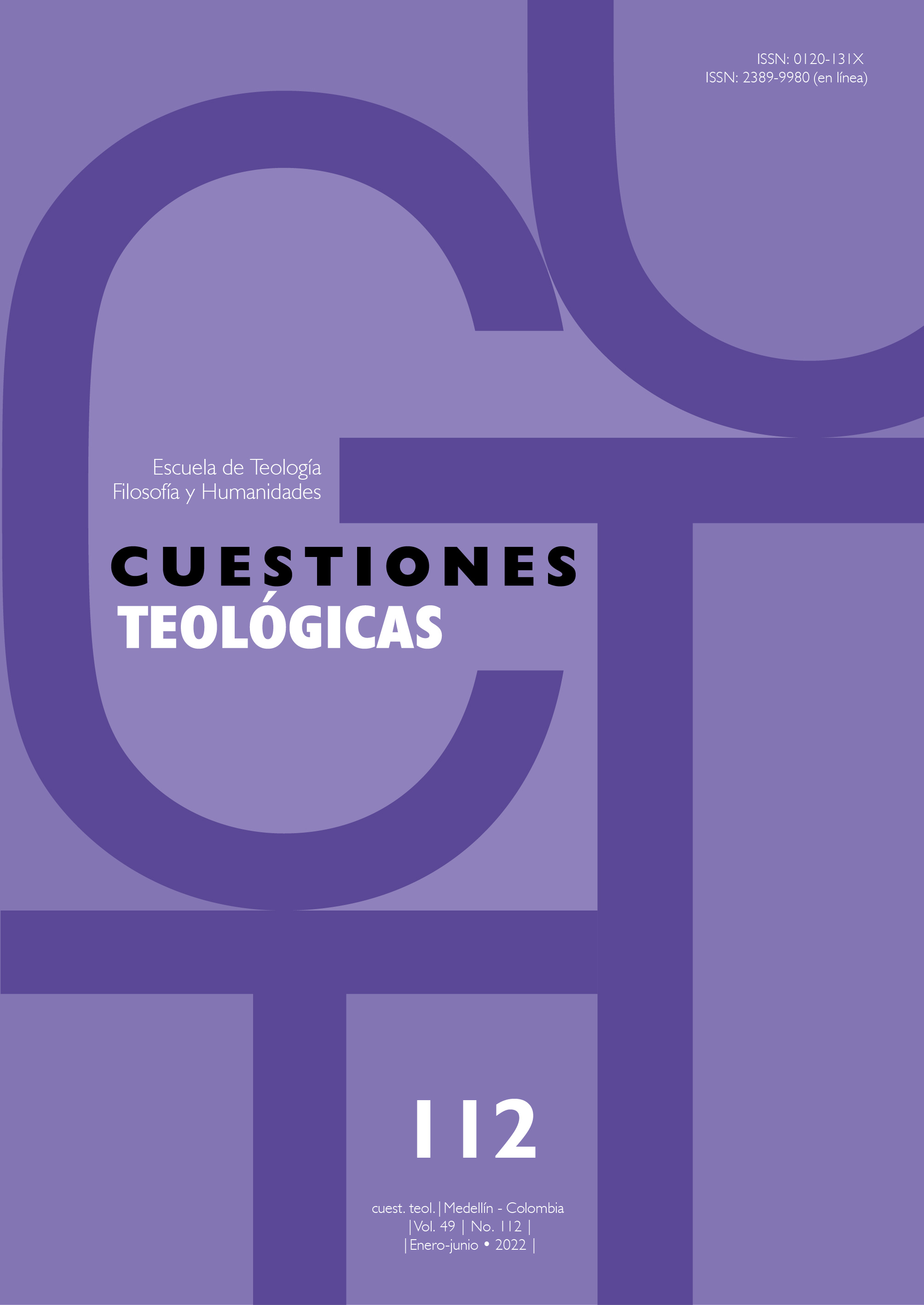Augustine of Hippo: Advocate of Scriptural Metaphor
Main Article Content
Abstract
This article investigates Augustine’s evolving views on metaphor in his commentaries on the creation narrative. He contends that certain metaphysical truths, including God and his creation, are ineffable and can only be understood metaphorically. Therefore, he thinks that metaphors are crucial in the interpretation of the Scriptures, and he spends a great deal of effort explaining this to his readers. In his early work De Genesi contra Manichaeos, he adheres to the classical view, in which metaphors have a fixed meaning that can easily be rendered using a literal expression. This is a useful method to refute the Manichean claims, but it stands at odds with the idea that the things that these metaphors describe are beyond words. Later, in De Genesi ad Litteram, he comes up with a novel approach to metaphor. Here, he leaves a great deal of interpretational freedom to the reader. He points out that certain expressions are metaphors, and that individual expressions are part of a larger metaphorical concept, without restricting their meaning. Augustine’s approach shares similarities with the modern metaphor theories laid out by Max Black, as well as by George Lakoff & Mark Johnson, which may not have been as innovative as once thought.
References
Aristotle. Poetics. Hubbard, M.E. (Trans.) (1972.) In Russel, D.A and M. Winterbottom (Ed.), Ancient Literary Criticism, Oxford: Oxford University Press, 85-131.
Aristotle. Rhetoric. Kennedy, G.A. (Trans.) (2007.) Aristotle on rhetoric, a theory of civic discourse, second edition. New York/Oxford: Ofxord University Press.
Augstine. De Genesi contra Manichaeis, De Genesi ad Litteram Imperfectus. Hill, E. (Trans.). (2002.) On Genesis. New York: New City Press.
Augustine. De Doctrina Christiana. Edited with an introduction, translation and notes. (R.P.H. Green, Trans.). (1995). Oxford: Clarendon.
Augustine. De Genesi ad litteram liber unus imperfectus (CSEL 28, 1, 457-503)
Augustine. De Genesi ad litteram libri duodecim (CSEL 28, 1, 3-435)
Augustine. De Genesi ad Litteram. Taylor, J.H. (Trans.). (1982). The Literal Meaning of Genesis. New Jersey: Paulist Press.
Augustine. De Genesi adversus Manichaeos libri duo (CSEL 91, 67-172)
Cicero. De Oratore. Winterbottom, M. (Trans.) (1972.) In Russel, D.A and M. Winterbottom (Ed.), Ancient Literary Criticism, Oxford: Oxford University Press, 216-264.
De Ratione Dicendi (Rhetorica ad Herennium). Caplan, H. (Ed. and Trans.). (1964.) Loeb Classical Library. Cambridge, Mass.: Harvard Univ. Press.
Augustine. De Genesi ad Litteram. Solignac, A. & Agaësse, P. (1972.) Oeuvres de saint Augustin. De genesi ad litteram libri duodecim 7e série. 48, I-VII. Paris: Desclée de Brouwer.
Black, M., (1962.) Metaphor. In M. Black, Models and Metaphors: Studies in Language and Philosophy, 19-43. Ithaca: Cornell University Press. Originally published in Proceedings of the Aristotelian Society, 55 (1954), 273-294.
Bouton-Touboulic, A. (2004.) L’ordre caché : la notion d’ordre chez saint Augustin. Paris: Institut d’études augustiniennes.
Jacobs, G.J.H.M. (2018.) Metaphor, history, and the ineffability of God: Augustine’s approach to reading the Old Testament. Bergambacht: 2vm.
Lakoff, G. & Johnson, M. (1980.) Metaphors We Live By. Chicago: University of Chicago Press.
Mayer, C.P. (Ed.) Augustinus-Lexikon / Vol. 3: Figura(e) – Mensura. (2004.) Basel: Schwabe.
Mayer, C.P. Die Zeichen in der geistigen Entwicklung und in der Theologie des jungen Augustinus. (1969.) Würzburg: Augustinus-Verlag.
Mayer, C.P. Die Zeichen in der geistigen Entwicklung und in der Theologie Augustins. II Teil, Die Anti-manichäische Epoche. (1974.) Würzburg: Augustinus-Verlag.Pollmann, K. (1996.) Doctrina christiana: Untersuchungen zu den Anfängen der christlichen Hermeneutik unter besonderer Berücksichtigung von Augustinus, De doctrina christiana. Freiburg, Schweiz: Universitätsverlag.
Pollmann, K. Augustine, Genesis, and controversy. In Augustinian Studies, 38, 2007, 203-216.
Van Geest, P. The Incomprehensibility of God, Augustine as a Negative Theologian. (2011.) Leuven: Peeters.






